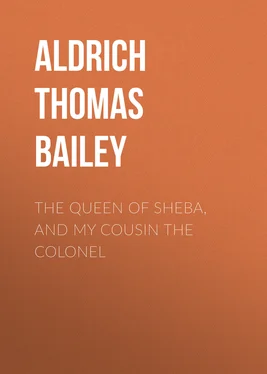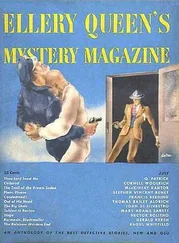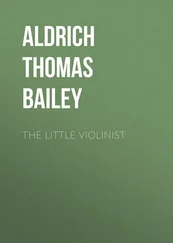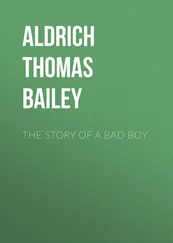Thomas Aldrich - The Queen of Sheba, and My Cousin the Colonel
Здесь есть возможность читать онлайн «Thomas Aldrich - The Queen of Sheba, and My Cousin the Colonel» — ознакомительный отрывок электронной книги совершенно бесплатно, а после прочтения отрывка купить полную версию. В некоторых случаях можно слушать аудио, скачать через торрент в формате fb2 и присутствует краткое содержание. Жанр: foreign_prose, literature_19, foreign_antique, на английском языке. Описание произведения, (предисловие) а так же отзывы посетителей доступны на портале библиотеки ЛибКат.
- Название:The Queen of Sheba, and My Cousin the Colonel
- Автор:
- Жанр:
- Год:неизвестен
- ISBN:нет данных
- Рейтинг книги:3 / 5. Голосов: 1
-
Избранное:Добавить в избранное
- Отзывы:
-
Ваша оценка:
- 60
- 1
- 2
- 3
- 4
- 5
The Queen of Sheba, and My Cousin the Colonel: краткое содержание, описание и аннотация
Предлагаем к чтению аннотацию, описание, краткое содержание или предисловие (зависит от того, что написал сам автор книги «The Queen of Sheba, and My Cousin the Colonel»). Если вы не нашли необходимую информацию о книге — напишите в комментариях, мы постараемся отыскать её.
The Queen of Sheba, and My Cousin the Colonel — читать онлайн ознакомительный отрывок
Ниже представлен текст книги, разбитый по страницам. Система сохранения места последней прочитанной страницы, позволяет с удобством читать онлайн бесплатно книгу «The Queen of Sheba, and My Cousin the Colonel», без необходимости каждый раз заново искать на чём Вы остановились. Поставьте закладку, и сможете в любой момент перейти на страницу, на которой закончили чтение.
Интервал:
Закладка:
Lynde brought his glass to bear on the red brick edifice mentioned, and fell to pondering it again.
"I'll be hanged if I don't think it's a nunnery," he said. By and by he let his gaze wander back to the town, in which he detected an appearance of liveliness and bustle not usual in New England villages, large or small. The main street was dotted with groups of men and women; and isolated figures, to which perhaps the distance lent a kind of uncanny aspect, were to be seen hurrying hither and thither.
"It must be some local celebration," thought Lynde. "Rural oratory and all that sort of thing. That will be capital!"
He had returned the glass to its leather case, and was settling it well on his hip, when he saw a man approaching. It was a heavily built old gentleman in a suit of black alpaca, somewhat frayed and baggy at the knees, but still respectable. He carried his hat in his hand, fanning himself with it from time to time, as if overcome by heat and the fatigue of walking. A profusion of snow-white hair, parted in the middle, swept down on either side of a face remarkable—if it was remarkable for anything—for its benign and simple expression. There was a far-off, indescribable something about this person, as though he had existed long ago and once had a meaning, but was now become an obsolete word in the human dictionary. His wide placid brows and the double chin which asserted itself above his high neckcloth gave him a curious resemblance to portraits of Dr. Franklin.
"The country parson," said Lynde to himself. "Venerable and lovely old character. I'll speak to him."
The old gentleman, with his head slightly thrown back, had his eyes fixed intently on some object in the sky, and was on the point of passing Lynde without observing him, when the young man politely lifted his hat, and said, "I beg your pardon, sir, but will you be kind enough to tell me the name of the town yonder?"
The old gentleman slowly brought his eyes down from the sky, fixed them vacantly upon Lynde, and made no response. Presuming him to be deaf, Lynde repeated his question in a key adapted to the exigency. Without a change in his mild, benevolent expression, and in a voice whose modulations were singularly musical, the old gentleman exclaimed, "Go to the devil!" and passed on.
The rejoinder was so unexpected, the words themselves were so brusque, while the utterance was so gentle and melodious, that Lynde refused to credit his ears. Could he have heard aright? Before he recovered from his surprise the gentleman in black was far up the slope, his gaze again riveted on some remote point in the zenith.
"It wasn't the country parson after all," said Lynde, with a laugh; "it was the village toper. He's an early bird—I'll say that for him—to have secured his intoxicating worm at this hour of the morning."
Lynde picked up the saddle and resumed his march on the town in the happy valley. He had proceeded only a little way when he perceived another figure advancing towards him—a figure not less striking than that of the archaic gentleman, but quite different. This was a young girl, of perhaps seventeen, in a flowing dress of some soft white stuff, gathered at the waist by a broad red ribbon. She was without hat or shawl, and wore her hair, which was very long and very black, hanging loosely down her shoulders, in exaggeration of a style of coiffure that afterwards came into fashion. She was moving slowly and in the manner of a person not accustomed to walking. She was a lady—Lynde saw that at a glance—probably some city-bred bird of passage, resting for the summer in this vale of health. His youthful vanity took alarm as he reflected what a comical picture he must present with that old saddle on his back. He would have dumped it into the barberry-bushes if he could have done so unobserved; but it was now too late.
On perceiving Lynde, the girl arrested her steps a moment irresolutely, and then came directly towards him. As she drew nearer Lynde was conscious of being dazzled by a pair of heavily fringed black eyes, large and lustrous, set in an oval face of exquisite pallor. The girl held a dandelion in one hand, twirling it by the end of its long, snake-like stem as she approached. She was close upon him now; for an instant he caught the wind of the flower as it swiftly described a circle within an inch of his cheek. The girl paused in front of him, and drawing herself up to her full height said haughtily—
"I am the Queen of Sheba."
Then she glided by him with a quickened pace and a suddenly timid air. Lynde was longer recovering himself, this time. He stood rooted to the ground, stupidly watching the retreating gracious form of the girl, who half turned once and looked back at him. Then she vanished over the ridge of the hill, as the old gentleman had done. Was she following him? Was there any connection between those two? Perhaps he was the village clergyman. Could this be his daughter? What an unconventional costume for a young lady to promenade in—for she was a lady down to her finger-nails! And what an odd salutation!
"The Queen of Sheba!" he repeated wonderingly. "What could she mean by that? She took me for some country bumpkin, with this confounded saddle, and was laughing at me. I never saw a girl at once so—so audacious and modest, or so lovely. I didn't know there was anything on earth so lovely as that girl."
He had caught only an instantaneous glimpse of her face, but he had seen it with strange distinctness, as one sees an object by a flash of lightning; and he still saw it, as one seems still to see the object in the after-darkness. Every line of the features lived in his eyes, even an almost indistinguishable scar there was on the girl's right cheek near the temple. It was not a flaw, that faint scar; it seemed somehow to heighten her loveliness, as an accent over a word sometimes gives it one knows not what of piquancy.
"Evidently she lives in the town or in the neighborhood. Shall I meet her again, I wonder? I will stay here a week or a month if—What nonsense! I must have distinguished myself, staring at her like a gawk. When she said she was the Queen of Sheba, I ought instantly to have replied—what in the deuce is it I ought to have replied? How can a man be witty with a ton of sole-leather pressing on his spine!"
Edward Lynde, with the girl and her mocking words in his mind, and busying himself with all the clever things he might have said and did not say, mechanically traversed the remaining distance to the village.
The street which had seemed thronged when he viewed it from the slope of the hill was deserted; at the farther end he saw two or three persons hurrying along, but there were no indications whatever of the festival he had conjectured. Indeed, the town presented the appearance of a place smitten by a pestilence. The blinds of the lower casements of all the houses were closed; he would have supposed them unoccupied if he had not caught sight of a face pressed against the glass of an upper window here and there. He thought it singular that these faces instantly withdrew when he looked up. Once or twice he fancied he heard a distant laugh, and the sound of voices singing drunkenly somewhere in the open air.
Some distance up the street a tall liberty-pole sustaining a swinging sign announced a tavern. Lynde hastened thither; but the tavern, like the private houses, appeared tenantless; the massive pine window-shutters were barred and bolted. Lynde mounted the three or four low steps leading to the piazza, and tried the front door, which was locked. With the saddle still on his shoulders, he stepped into the middle of the street to reconnoitre the premises. A man and two women suddenly showed themselves at an open window in the second story. Lynde was about to address them when the man cried out—
"Oh, you're a horse, I suppose. Well, there isn't any oats for you here. You had better trot on!"
Читать дальшеИнтервал:
Закладка:
Похожие книги на «The Queen of Sheba, and My Cousin the Colonel»
Представляем Вашему вниманию похожие книги на «The Queen of Sheba, and My Cousin the Colonel» списком для выбора. Мы отобрали схожую по названию и смыслу литературу в надежде предоставить читателям больше вариантов отыскать новые, интересные, ещё непрочитанные произведения.
Обсуждение, отзывы о книге «The Queen of Sheba, and My Cousin the Colonel» и просто собственные мнения читателей. Оставьте ваши комментарии, напишите, что Вы думаете о произведении, его смысле или главных героях. Укажите что конкретно понравилось, а что нет, и почему Вы так считаете.












